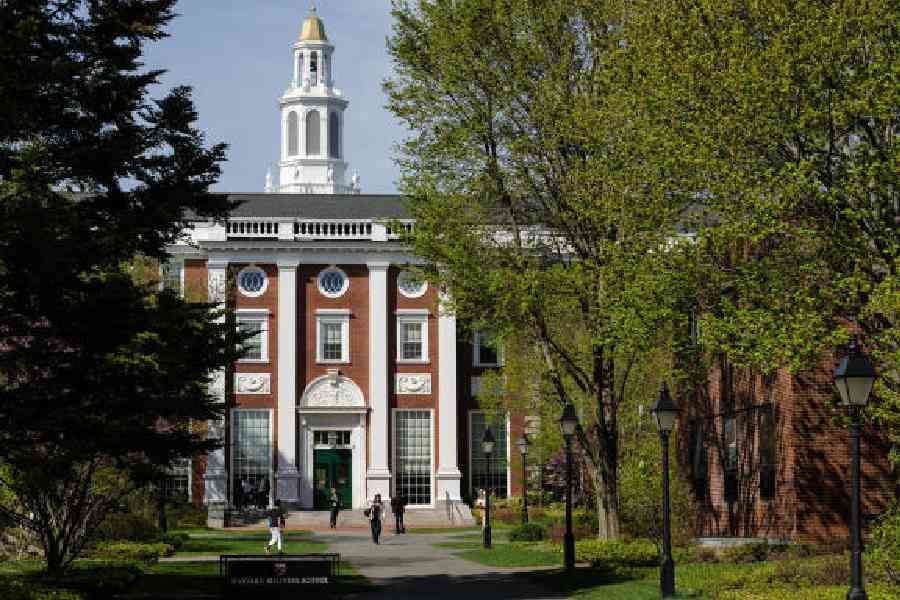Beyond Harvard


The Trump administration’s surprising bid to end Harvard’s international enrollment put the higher education world on edge, looming as a larger threat against academic autonomy.
Well beyond the halls of Harvard, college leaders were shocked that one swift move by the federal government could eliminate their ability to serve students from abroad, a growing population that has infused their campuses with cachet and wealth.
“This is a grave moment,” Sally Kornbluth, president of the Massachusetts Institute of Technology, US, wrote in a message to her campus.
More than 5,000 miles away, Wendy Hensel, president of the University of Hawaii, US, said that it was “reverberating across higher education”. US President Donald Trump has unnerved universities this year by launching investigations, freezing grants, demanding changes in campus practices and attempting to deport international students.
He has justified his punitive approach as a means to combat what he considers anti-Semitism. But he and his allies also have long resented a perceived liberal bias and racial diversity efforts at prestigious colleges.
The Trump administration said that it revoked Harvard’s international student certification because the university had failed to meet its demands, including a request for records of student protest activity dating back five years. To many academics, this was a clear signal that Trump was prepared to use any federal mechanism as leverage if he did not get what he wants.
“While Harvard is the victim of the moment, it’s a warning and unprecedented attempt of a hostile federal government to erode the autonomy of all major universities in the US,” said John Aubrey Douglass, a senior research fellow at the Center for Studies in Higher Education at the University of California, Berkeley, US.
Trump may not get his way in the end; a federal judge temporarily blocked his manoeuvre, setting up another legal battle that Harvard is willing to fight.
But the move itself could still force campuses elsewhere to think harder about how far they are willing to go to resist the President’s demands. And it likely will scare off some international students who fear their college track in the US could be disrupted at any point.
“The implication is a growing and great chill on attracting academic talent to the US,” Douglass said.
Across the nation, enrolment from abroad has doubled in the past 25 years, with more than 1 million international students now studying in the US.
While international students make up slightly more than 5 per cent of university students nationwide, some of the nation’s most selective schools rely far more heavily on them.
New York University is home to nearly 60,000 students, one-third of them international. At Columbia University, about two in five students come from abroad. And at Harvard, more than a quarter of students come from across the globe.
Universities see many benefits of having a global student body that enriches the intellectual, social and cultural life on campus. Drawing the world’s top talent also helps develop outstanding academic programmes and opportunities for groundbreaking research.
Many students who complete their degrees in the US stay here afterwards to build their careers, whether in academia or private industry, fuelling a global economy.
But as selective universities have grown more international, some conservatives say American students are losing out.
Upper-middle class children in the US are having an increasingly hard time getting into places like Harvard,” said Jay Greene, a senior research fellow at the Heritage Foundation’s Center for Education Policy.
Kristi Noem, the homeland security secretary who terminated Harvard’s access to the federal Student and Exchange Visitor Program, said that the move was a response to an unsafe campus environment for students, including Jews. She alleged that many protesters who engaged in harassment and physical assault were foreign students.
“Let this serve as a warning to all universities and academic institutions across the country,” she said.
Abdullah Shahid Sial, a sophomore at Harvard from Pakistan, welcomed the judge’s halt to the federal order but said that the ruling will not undo the damage that has been inflicted on American higher education. Many international students don’t feel comfortable living in the US anymore, according to Sial. “They wanted us to feel unwelcome,” Sial said. “They’ve done a pretty good job of that.”
NYTNS